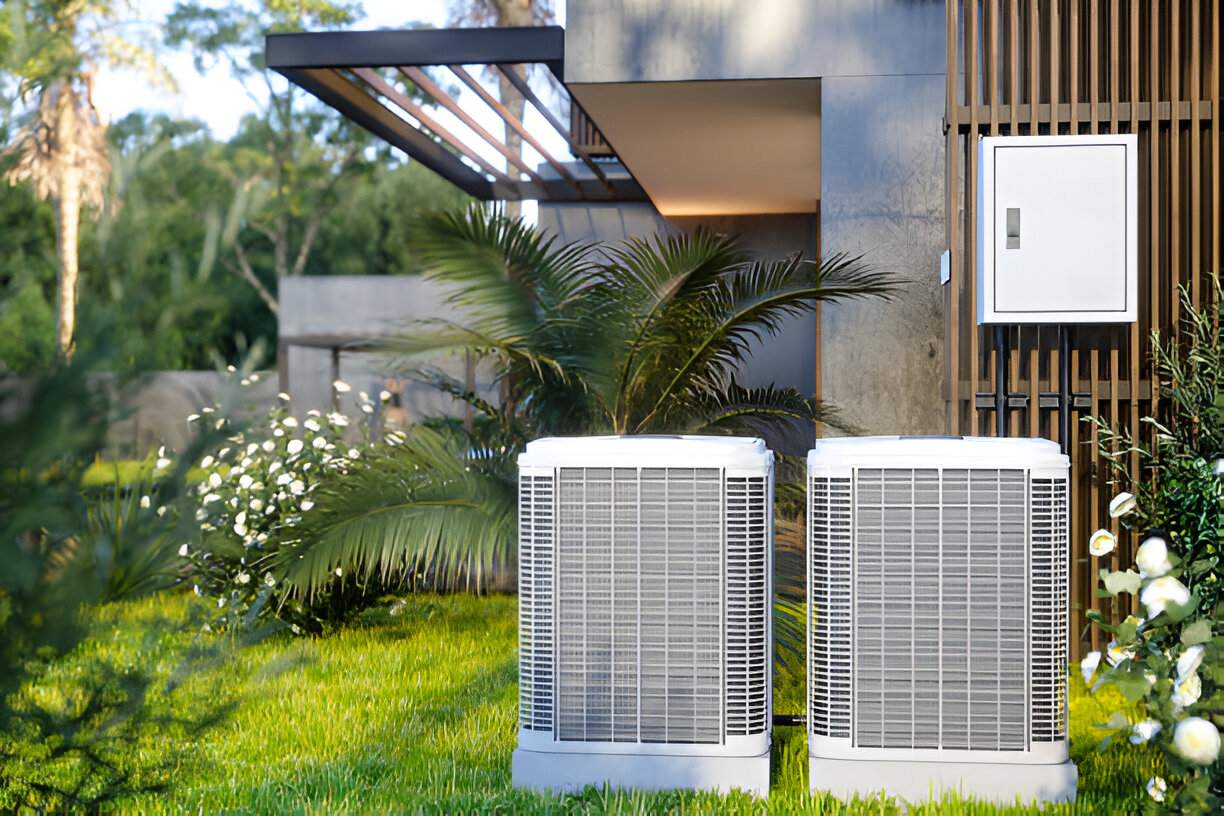Commercial HVAC Services in Bunker Hill Village, TX
Commercial HVAC Services in Bunker Hill Village, TX
Commercial HVAC in Bunker Hill Village, TX is critical to keep tenants comfortable, protect sensitive equipment, and control operating costs in the Houston-area climate. High summer heat, humidity, and occasional severe weather place heavy demands on rooftop units and packaged systems. Businesses here need reliable installation, proactive maintenance, energy-efficiency upgrades, and code-compliant work that minimizes downtime during tenant improvements or emergencies. This page explains common commercial HVAC needs in Bunker Hill Village, describes how professional services solve them, and outlines practical outcomes you can expect.

Common commercial HVAC issues in Bunker Hill Village, TX
- Frequent cooling cycles and high energy use during long, humid summers.
- Corrosion and coil fouling from salty, humid air that reduces capacity.
- Uneven tenant comfort in multi-tenant office suites or retail centers.
- Code and permitting challenges for renovations and equipment swaps in older buildings.
- Emergency failures during peak season that risk tenant complaints and loss of business.
Understanding these local pressures helps prioritize service options — from rooftop unit replacement to ongoing preventive maintenance.
Commercial system types we handle
- Rooftop unit (RTU) installation and replacement: Full tear-outs, curb adapters, curb rails, and condensing unit swaps sized for peak heat loads common to Bunker Hill Village.
- Packaged system installation: Single-package roof or ground-mounted systems for small-to-mid-size commercial spaces.
- Split systems and ducted central systems: For office interiors and tenant improvement projects that require interior installs.
- Controls and BAS upgrades: Building automation system integration, programmable thermostats, and remote monitoring to optimize run schedules and reduce runtime during off-peak hours.
- Variable frequency drives (VFDs) and economizers: For fan and pump control to lower energy consumption while maintaining IAQ and comfort.
Preventive maintenance contracts tailored to local needs
Preventive maintenance (PM) contracts are designed to minimize emergency breakdowns and extend equipment life, especially in climates that strain cooling systems. A robust PM contract typically includes:
- Seasonal inspections timed before high-use spring and summer months.
- Coil cleaning, refrigerant checks, and drain line maintenance to fight corrosion and moisture issues.
- Belt and bearing checks, motor lubrication, and airflow balancing.
- Calibration of thermostats and control sequences to match tenant schedules.
- Detailed service reports with prioritized recommendations and parts condition tracking.
Benefits of PM for Bunker Hill Village businesses include fewer unscheduled repairs, improved energy efficiency, and predictable budgeting for replacements.
Building system audits: what they cover and why they matter
A commercial building system audit identifies inefficiencies and compliance gaps. Typical audit components:
- Equipment inventory and remaining useful life estimates.
- Thermal imaging and airflow testing to find leaks and insulation deficits.
- Refrigerant charge and efficiency analysis for cooling plants.
- Control sequence review and runtime data logging for occupancy patterns.
- Energy-use benchmarking and cost-saving opportunity identification.
Audits produce actionable recommendations: retrofit priorities, payback estimates for upgrades, and a phased plan that aligns with tenant schedules and budget constraints.
Energy-efficiency upgrades with measurable impact
Energy-efficiency upgrades deliver lower operating costs and improved occupant comfort. Practical upgrades for Bunker Hill Village commercial properties include:
- Replacing aging RTUs with high-efficiency units and properly sized ductwork.
- Adding economizers and demand-controlled ventilation to reduce makeup air costs.
- Installing VFDs on chilled water pumps and supply fans to cut energy during low-load periods.
- Upgrading controls and adding remote monitoring for fault detection and performance tuning.
- Upgrading insulation, sealing duct leaks, and installing low-SCFM exhaust strategies in tenant spaces.
Typical outcomes: reduced energy use by 15–30% for targeted upgrades, longer equipment life, and better indoor air quality — all important in a humid climate where moisture control affects comfort and mold risk.
Compliance with commercial codes and permitting
Commercial HVAC work in Bunker Hill Village must meet applicable codes and standards, including local building codes and industry standards such as ASHRAE guidelines. Services cover:
- Preparing permit-ready plans and equipment specifications.
- Ensuring ventilation rates and IAQ meet current standards for tenant occupancy types.
- Performing code-compliant ductwork, rooftop curb, and structural anchoring.
- Coordinating inspections and providing compliance documentation for building departments.
Proactive code compliance reduces rework, inspection delays, and legal exposure during tenant improvements or property sales.
Tenant improvement HVAC projects: sequencing and coordination
Tenant improvement (TI) projects require precise scheduling to avoid business disruption. Effective TI HVAC services include:
- Early-phase system evaluation to determine scope: branch duct runs, diffusers, and return paths.
- Phased installation plans synchronized with other trades to keep tenant spaces operational.
- Temporary cooling solutions and staged equipment swaps for continuous comfort.
- Commissioning and air balancing post-install to ensure designed conditions are met.
These practices keep projects on schedule and preserve tenant satisfaction in multi-tenant office buildings and retail centers.
Emergency service procedures for businesses
Unexpected failures need fast, organized responses to limit downtime. Emergency procedures typically include:
- 24/7 response with prioritized dispatch for critical loads (medical offices, data centers, restaurants).
- Remote triage through telemetry or on-site diagnostics to determine next steps.
- Rapid parts staging and temporary cooling options (roof-mounted temporary units, portable HVAC).
- Clear incident reporting and mitigation steps to prevent recurrence.
Prepared emergency plans, supported by preventive maintenance records, increase recovery speed and reduce business interruption.
Case study examples and expected results
Common outcomes for commercial clients in the area include:
- Rooftop unit replacement on a small office park that reduced tenant complaints and cut energy use by 20% within the first cooling season.
- Building audit and controls retrofit in a multi-tenant building that lowered peak demand charges and improved HVAC zoning, leading to better comfort and 15% lower utility bills.
- Emergency RTU swap for a retail tenant completed overnight with temporary cooling, avoiding lost sales and preserving tenant relations.
These representative examples illustrate the practical benefits of coordinated installation, maintenance, and upgrade strategies in Bunker Hill Village properties.
Maintenance tips and long-term benefits
- Schedule seasonal inspections before heavy cooling demand.
- Track runtime hours and refrigerant levels to catch issues early.
- Prioritize coil and filter cleanliness to maintain efficiency in humid conditions.
- Consider staged upgrades focused on controls and rooftop unit efficiency for the best short-term ROI.
Regular attention produces longer equipment life, lower total operating costs, improved indoor air quality, and fewer emergency outages — all essential for commercial property owners and managers in Bunker Hill Village, TX.
Customer Testimonials
Our customers praise our exceptional service and attention to detail, consistently exceeding expectations.































































